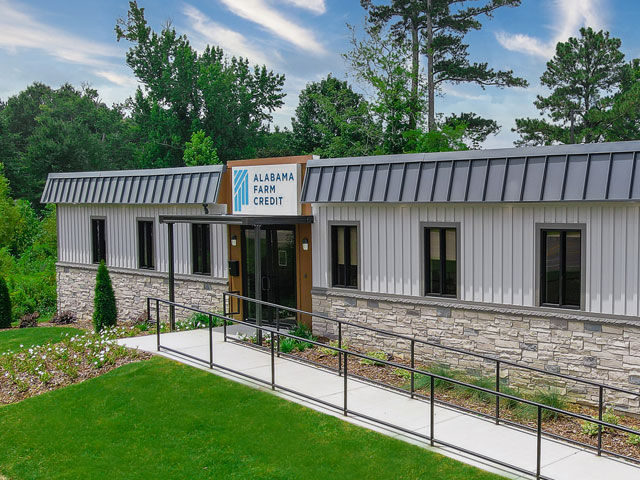The Basics of Modular Banks and Financial Institutions

Modern banks and financial businesses have embraced the digital age, with everything from apps to online loan transactions offering fast and easy service. Yet the tangible presence of brick-and-mortar branches remains invaluable, especially for financial companies that prioritize personal service and local engagement. A recent article by The Independent Banker underscores this point, highlighting that physical locations continue to play a pivotal role in delivering exceptional customer service and fostering trust within communities.
Building or expanding a financial business comes with unique challenges, particularly in terms of security and customer privacy. At Quick Buildings Modular in Mobile, Alabama, we understand the evolving needs of the financial sector to combine traditional customer service with modern efficiency. Modular bank buildings present a strategic solution by offering the security and convenience expected of banking locations while also providing the flexibility and cost-efficiency necessary to adapt in a changing economy. By choosing modular construction, financial institutions can establish or expand their physical footprint more quickly and sustainably than ever before, ensuring they meet customer expectations without compromising on quality or security.
As the modular building industry experts, the Quick Buildings Modular team is experienced in designing and installing custom banks and financial institutions that capture the modern possibilities of modular construction. To better serve our financial clients across the Southeast in Mississippi, Georgia, Alabama and Florida, we’ve created this guide to share the basics of modular banks and how our custom solutions can benefit your business.
What are Modular Bank Buildings?
Modular bank buildings use innovative construction to offer financial institutions a fast, flexible, and efficient solution to creating or expanding physical locations. Unlike traditional construction, which requires all phases of building to occur on-site, modular construction involves prefabricating the building sections (modules) in a controlled factory setting. These modules are then transported to the intended site, where they are assembled into a fully functional bank branch or office space.
The Benefits of Modular Construction for Banks and Financial Buildings
Speed of Construction. The production of modules off-site allows for simultaneous site work and building construction, significantly reducing the overall project timeline. The controlled environment of a factory also minimizes common on-site challenges such as weather delays and labor shortages. This method can cut down the construction time by as much as 50% compared to conventional methods, providing a speedy return on investment.
Affordability. Modular construction can reduce the overall project price by reducing costs on construction, labor crews, permit fees and unexpected delays.
Strict Quality Control. The process of module construction is consistent and controlled, with frequent inspections to ensure each unit meets strict quality control standards that often surpass traditional building codes.
Flexibility. Modules can be designed in various configurations and sizes to accommodate everything from small-scale town branches to large urban financial centers. This adaptability extends to the interior design as well, which can be customized to reflect the bank’s brand and cater to specific customer needs, such as private consultation areas, spacious customer service halls, or secure teller stations.
Efficiency. Modular buildings are not only quick to assemble but are also designed to be energy-efficient and support sustainability. Insulation, window placements, and HVAC systems are all optimized during the fabrication process, resulting in lower operational costs and a smaller environmental footprint once the building is in use.
Scalability. As financial institutions evolve, their physical spaces must also adapt. Modular construction uniquely accommodates this need by allowing for modules to be added, removed, or reconfigured as the bank grows or as customer needs change.
Customization and Security: Tailoring Modular Bank Buildings to Industry Needs
Banks and financial institutions face a unique set of requirements that combine high security with customer-oriented services. Modular construction offers an ideal solution by providing customizable layouts and integrated security features that can be tailored to each institution’s specific needs. Whether expanding traditional banking services or introducing high-tech features, modular buildings can be custom-designed to enhance both functionality and customer experience.
Key options and features that can be included in modular bank buildings include:
- Drive-Up lanes with tube delivery systems
- Teller stations
- Check writing stands
- Night deposit and cash safe
- ATM systems
- Private offices and meeting rooms
- Secure vaults and safe deposit boxes
- ADA-compliant facilities
- Cat6 Ethernet Cabling
- Bullet-Resistant glass
- Custom facades and finishes
- Alarm systems and CCTV
Modular construction represents a transformative approach for the financial sector, combining rapid deployment, cost efficiency, and adaptable designs with the rigorous security standards required by banks and financial institutions. At Quick Buildings Modular, we are committed to providing solutions that not only meet but exceed the expectations of our clients in terms of quality, functionality, and customization. Whether you are looking to expand existing facilities or build new branches, our team is ready to bring your vision to life.
Contact us for a consultation and custom quote on your next bank or financial building project. We look forward to building something great together.
